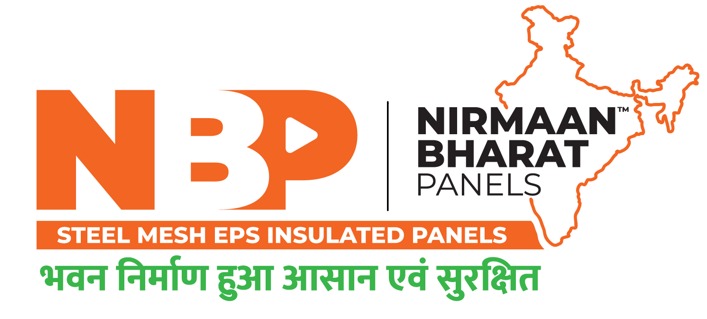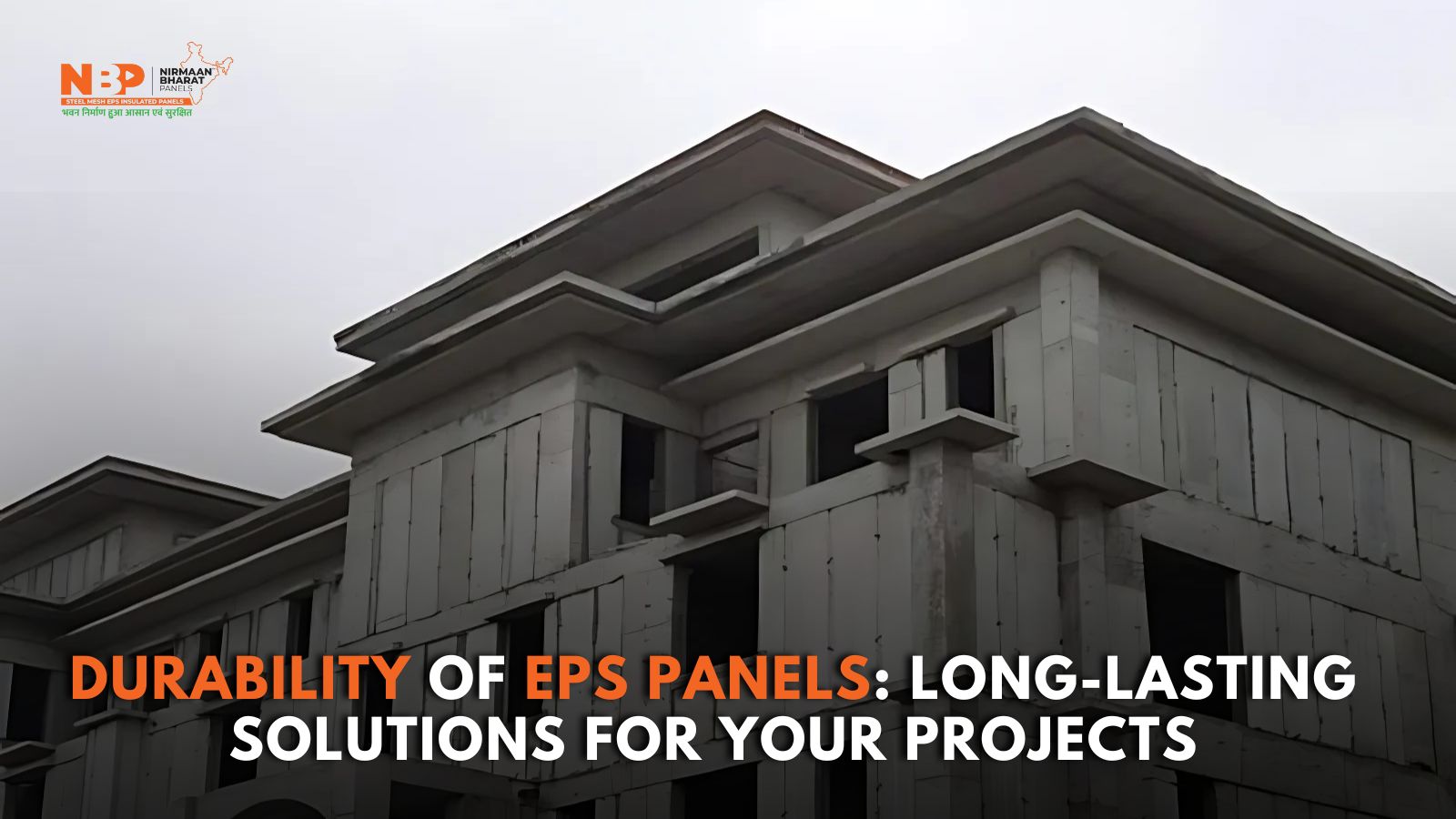In the ever-evolving world of construction, choosing the right materials can significantly impact the longevity and performance of a project. Among the many innovative materials available, Expanded Polystyrene (EPS) panels stand out for their remarkable durability and versatility. This blog will explore the benefits of EPS panels, their applications, and why they are considered a long-lasting solution for your construction needs.
Table of Contents
ToggleUnderstanding EPS Panels
Expanded Polystyrene (EPS) is a lightweight and rigid foam substance composed of polystyrene beads. These beads are expanded and fused together to create a material that is both strong and insulative. EPS panels are widely used in construction due to their unique properties, which combine durability, insulation, and ease of handling.
Key Properties of EPS Panels
- Lightweight Design: EPS panels are significantly lighter than traditional building materials, making them easy to transport and install. This property can result in decreased labor expenses and quicker project completion durations.
- Thermal Insulation: One of the standout features of EPS panels is their excellent thermal insulation properties. The closed-cell structure of the foam minimizes heat transfer, helping maintain comfortable indoor temperatures and reducing energy costs.
- Moisture Resistance: EPS panels are inherently resistant to moisture, which helps prevent mold, mildew, and other forms of water damage. This moisture resistance enhances the durability of buildings constructed with EPS panels.
- Impact Resistance: The robustness of EPS panels allows them to withstand impacts and harsh weather conditions, making them suitable for various climates and environments.
- Fire Resistance: While EPS itself is flammable, modern manufacturing processes often include fire-retardant additives that enhance its fire resistance. This makes EPS panels a safer option for construction when properly treated.
Durability of EPS Panels: A Long-Term Investment
The durability of EPS panels makes them an excellent choice for both residential and commercial construction projects. Below, we delve deeper into the aspects of durability that make EPS panels a long-term investment:
1. Longevity
EPS panels can last for over 50 years when properly installed and maintained. Their resistance to environmental factors like moisture and temperature fluctuations contributes to their longevity. Compared to traditional materials, which may deteriorate over time, EPS panels maintain their structural integrity for decades.
2. Low Maintenance Requirements
One of the significant advantages of using EPS panels is their low maintenance requirements. Unlike traditional materials that may require regular upkeep or replacement, EPS panels remain durable and functional with minimal care. This characteristic not only saves time and effort but also reduces long-term costs associated with maintenance and repairs.
3. Sustainability
Durable materials contribute to sustainability by reducing the frequency of replacements and minimizing waste. EPS panels can be recycled at the end of their life cycle, further enhancing their eco-friendliness. Additionally, their insulation properties lead to energy-efficient buildings, which helps lower greenhouse gas emissions.
Applications of EPS Panels
Due to their remarkable durability and versatility, EPS panels are suitable for a wide range of applications in the construction industry:
1. Residential Construction
EPS panels are increasingly used in residential buildings for walls, roofs, and floors. Their insulation properties help maintain comfortable indoor temperatures, leading to energy savings for homeowners.
2. Commercial Buildings
In commercial construction, EPS panels are utilized for their strength and efficiency. They are commonly used in shopping malls, office buildings, and warehouses, where energy efficiency and durability are critical.
3. Infrastructure Projects
EPS panels are also effective in infrastructure projects such as bridges, tunnels, and roadways. Their lightweight nature reduces the load on structural components, while their impact resistance ensures they can withstand heavy traffic and environmental stresses.
4. Cold Storage Facilities
The exceptional insulation properties of EPS panels make them ideal for cold storage facilities, ensuring that temperature-sensitive goods remain at the required conditions without excessive energy consumption.
Cost-Effectiveness of EPS Panels
While the initial investment in EPS panels may be comparable to other materials, their long-term benefits often outweigh the upfront costs. The durability, low maintenance requirements, and energy savings associated with EPS panels lead to significant cost savings over time. Furthermore, the speed of installation can reduce labor costs, contributing to a more budget-friendly construction project.
Conclusion
The durability of EPS panels makes them an excellent solution for construction projects, offering long-lasting benefits for both residential and commercial applications. With their lightweight design, excellent thermal insulation, moisture resistance, and low maintenance requirements, EPS panels represent a smart investment for builders and architects alike.
As you consider materials for your next project, remember the advantages of EPS panels. Their unique properties not only enhance the longevity and performance of structures but also contribute to sustainability and cost-effectiveness. Explore how Nirmaan Bharat Panels can provide high-quality EPS panels tailored to your project needs, ensuring durability and reliability for years to come.
If you have any further questions about EPS panels or their applications, don’t hesitate to reach out to our team. Let us help you build a lasting legacy with innovative materials that stand the test of time.
Frequently Asked Questions (FAQs)
Q1. What are the advantages of using EPS panels over traditional materials?
Ans: EPS panels offer several advantages over traditional building materials, including:
- Lightweight and easy to handle: Its lightweight nature and ease of handling contribute to lower labour costs and reduced installation time.
- Superior thermal insulation: Helps maintain energy efficiency and comfort.
- Moisture and impact resistance: Ensures longevity and durability.
- Low maintenance requirements: Saves time and costs associated with repairs.
Q2. Are EPS panels environmentally friendly?
Ans: Yes, EPS panels are environmentally friendly. They are recyclable and contribute to sustainability by reducing the frequency of replacements. Their energy-efficient properties also lower greenhouse gas emissions, making them a responsible choice for environmentally-conscious builders.
Q3. What is the performance of EPS panels under severe weather conditions?
Ans: EPS panels are designed to withstand various weather conditions, including heavy rains, high winds, and extreme temperatures. Their moisture resistance prevents water absorption, while their impact resistance protects against damage from hail and debris. When installed correctly, EPS panels perform reliably in even the harshest environments.


